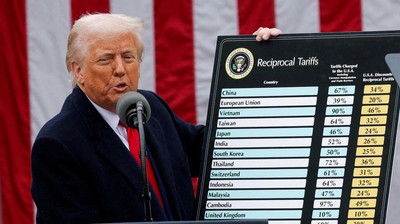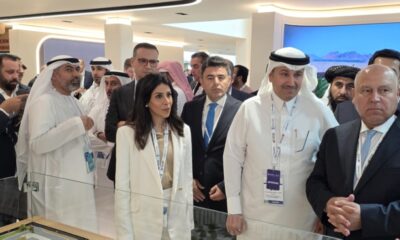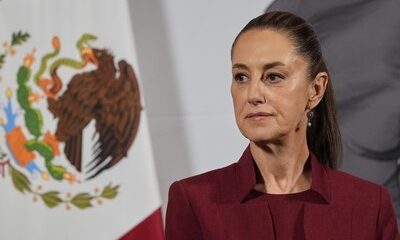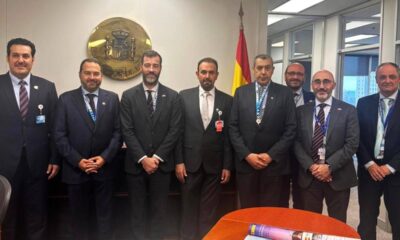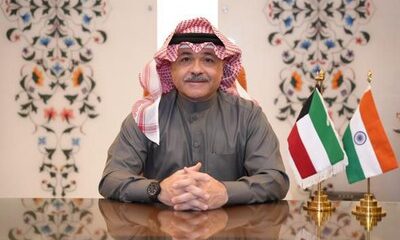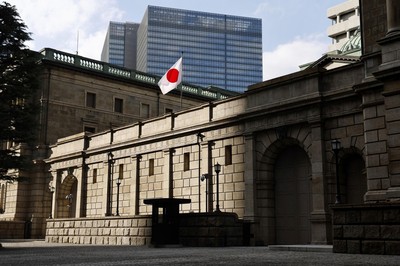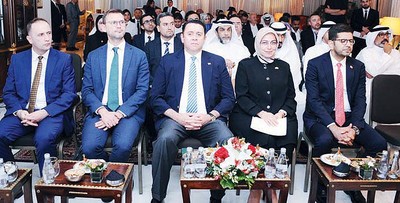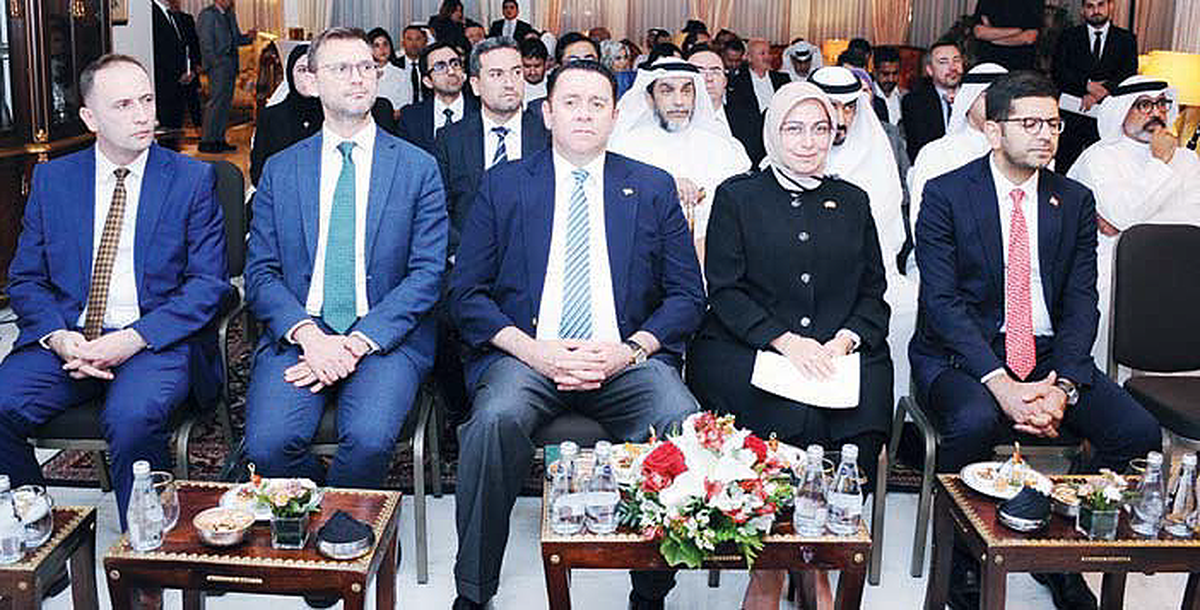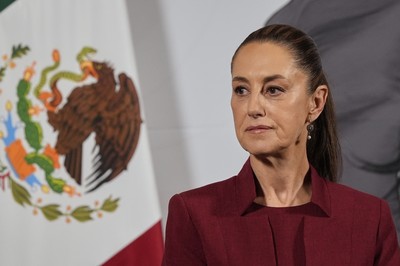NEW YORK, April 9: Despite significant turmoil in financial markets, threats of retaliation, and pressure from some of President Donald Trump’s key supporters to scale back his signature economic policy, Trump pressed forward with his aggressive stance on trade. On Wednesday, his administration imposed new “reciprocal” tariffs on a range of American allies and adversaries, aiming to, in his words, restore fairness and revitalize American manufacturing.
China, the primary target, now faces tariffs of at least 104%, surpassing the initially planned figures. Trump raised these tariffs further after Beijing maintained its promise to impose 34% retaliatory tariffs on U.S. goods. The new tariff rates, which were based on a formula involving a country’s trade deficit with the U.S., range from 11% to 50%. In this round, key U.S. trading partners such as the European Union (20%), China (34%), Japan (24%), Vietnam (46%), and South Korea (25%) were all affected, with Mexico and Canada being the only major exceptions.
These tariff hikes come just days after Trump levied a 10% universal tariff on all imports except from Mexico and Canada. The 10% tariff is not added to the new reciprocal tariffs; for instance, Japan’s tariff rate increased by 14% on Wednesday after the initial 10% was already applied.
In a recent statement, Trump declared, “Our country and its taxpayers have been ripped off for more than 50 years. But it is not going to happen anymore.” He reiterated similar remarks just hours before the tariffs went into effect, accusing other countries, particularly China, of “leaving us for dead.”
As these tariffs take effect, both Americans and people worldwide will feel the financial impact. Importers will initially bear the brunt of the tariffs, but those costs are typically passed on to wholesalers, retailers, and ultimately consumers. Foreign businesses are also likely to feel the effects, with American companies potentially seeking goods from countries with lower tariff rates.
The ongoing trade war threatens to escalate, with China’s Foreign Ministry promising to take “resolute and effective measures” to protect its interests, though no immediate retaliatory actions were announced. The market’s reaction has been swift, with several trillion dollars in U.S. stock market value evaporating since April 2, leading to heightened concerns about a global recession. JPMorgan has increased its forecast for a global recession to 60% by year-end if Trump continues with his full tariff plan.
Economists at JPMorgan highlighted that the tariff hikes under Trump’s administration represent the largest U.S. tax increase in nearly six decades. These measures could have significant consequences for household and business spending, leading to retaliation, declining business sentiment, and disruptions to global supply chains. The nonpartisan Tax Foundation estimates that American consumers will face an additional $2,100 in annual costs due to these tariffs.
Since returning to the White House, Trump has continued to make bold moves. Prior to this latest round, he had already imposed a 20% tariff on all Chinese imports and 25% tariffs on steel, aluminum, and automotive imports.
Goldman Sachs has raised its forecast for a U.S. recession to 45% within the next year, up from previous estimates. In a note titled “Countdown to a Recession,” the bank’s economists expressed surprise that Trump did not initially announce even higher tariffs and then scale them back.
Economists such as Brian Bethune, an economics professor at Boston College, predict that unless significant revisions are made to the tariffs, the U.S. economy will enter a recession by the second quarter of the year. There are even concerns that the tariffs could spark stagflation, a scenario where economic growth slows while inflation rises.
Despite these ominous predictions, not all analysts believe a recession is inevitable. Morgan Stanley analysts have suggested that the U.S. could avoid a downturn if Trump strikes deals with other nations to lower tariffs. Trump’s chief trade adviser, Peter Navarro, echoed this sentiment, confidently telling Fox News that he guaranteed the U.S. economy would not enter a recession.
However, even as dozens of countries have expressed a willingness to negotiate, it remains unclear whether these discussions will yield any results. Trump’s administration has made it clear that non-tariff trade barriers—such as currency manipulation, unfair tax policies, and labor conditions—are at the heart of their trade disputes, and they’ve rejected offers to reduce tariffs on U.S. goods in exchange for similar treatment.
China, the world’s second-largest economy, has been the hardest hit by Trump’s tariffs, and the U.S. and China are now fully engaged in a trade war. When Trump’s first term ended, the U.S. charged an average tariff rate of 19.3% on Chinese goods, according to the Peterson Institute for International Economics. Under President Biden, these tariffs have remained largely intact, with the average tariff rate on Chinese goods increasing slightly to 20.8%.
While both the U.S. and China have benefited from decades of trade, the U.S. has increasingly sought goods from other countries, such as Mexico, which overtook China as the largest source of U.S. imports in 2023. Several other Asian countries, including Vietnam, South Korea, and Taiwan, have also seen their trade with the U.S. surge since the start of Trump’s presidency.
Even with existing tariffs, China remained a significant supplier of goods to the U.S. in 2024, with $439 billion worth of Chinese goods entering the U.S., while the U.S. exported $144 billion in goods to China. The mutual tariffs imposed by both countries threaten to hurt domestic industries and could lead to layoffs in both nations.
If Trump were to reverse his tariff decisions, much of the economic damage could be mitigated, though some effects would likely remain. Colin Grabow, an associate director at the Cato Institute’s Herbert A. Stiefel Center for Trade Policy Studies, noted that Trump’s approach has damaged U.S. credibility, undermining long-standing free trade agreements and making it difficult for businesses to plan with certainty.

 Latest News22 hours ago
Latest News22 hours ago
 Politics8 hours ago
Politics8 hours ago
 Business15 hours ago
Business15 hours ago
 Latest News13 hours ago
Latest News13 hours ago
 Latest News15 hours ago
Latest News15 hours ago
 Latest News6 hours ago
Latest News6 hours ago
 Politics5 hours ago
Politics5 hours ago
 Latest News5 hours ago
Latest News5 hours ago
